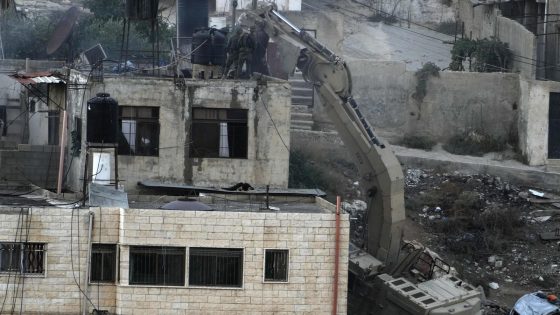The relatively limited scope of Israel’s overnight strikes on Iran, and a subdued response from Iranian officials, may have lowered the chances of an immediate escalation in fighting between the two countries, analysts said Friday.
For days, there have been fears that a forceful Israeli response to Iran’s attack on southern Israel last weekend could prompt an even more aggressive riposte from Iran, potentially turning a tit-for-tat confrontation into a wider war. Foreign leaders advised Israel to treat its successful defense against Iran’s missile barrage as a victory that required no retaliation, warning against a counterattack that might further destabilize the region.
But when it finally came early on Friday, Israel’s strike appeared less damaging than expected, allowing Iranian officials and state-run news outlets to downplay its significance, at least at first.
Iranian officials said that no enemy aircraft had been detected in Iranian airspace and that the main attack — on a military base in central Iran — had been initiated by small unmanned drones that were likely launched from inside Iranian territory. The nature of the attack even had precedent: Israel used similar methods in an attack on a military facility in Isfahan early last year.
By sunrise, Iranian state-run news outlets were projecting a swift return to normality, broadcasting footage of calm street scenes, while officials publicly dismissed the impact of the attack. Airports were also reopened, after a brief overnight closure.
Analysts cautioned that any outcome was still possible. But the initial Iranian reaction suggested that Iran’s leaders would not rush to respond, despite warning in recent days that they would react forcefully and swiftly to any Israeli strike.
“The way they present it to their own people, and the fact that the skies are open already, allows them to decide not to respond,” said Sima Shine, a former head of research for the Mossad, Israel’s foreign intelligence agency, and an Iran expert.
But, she added, “We have made so many evaluation mistakes that I am very hesitant to say it definitively.”
In a miscalculation that set off the current round of violence, Israel struck an Iranian embassy compound in Syria on April 1, killing seven Iranian officials including three senior commanders.
For years, Israel had mounted similar attacks on Iranian interests in Syria as well as Iran, without provoking a direct response from Iran. But the scale of the attack appeared to change Iran’s tolerance, with Iranian leaders warning that it would no longer accept Israeli strikes on Iranian interests anywhere in the region. Early on April 14, Iran fired more than 300 missiles and drones at Israel, causing little damage but shocking Israelis with the scale of the attack.
Even if Iran does not respond in a similar way to Israel’s latest strike on Friday, it could still react forcefully to future Israeli attacks on Iranian assets in Syria and elsewhere in the Middle East, Ms. Shine said.
That possibility became more pressing early on Friday, after the Syrian authorities said that Israel had again struck a site in Syria, at roughly the same time as its attack on Iran.
Israel did not claim responsibility for the strike, in line with its policy of not commenting on such attacks. But if the attack harmed Iranian interests, and if Iran attributes the attack to Israel, it remains unclear how Tehran will respond.
“The question is whether they will stand by their red line,” Ms. Shine said. “But what exactly is the red line? Is it only high ranking people? Is it only embassies? Or is it every Iranian target in Syria?”
Johnatan Reiss and Rawan Sheikh Ahmad contributed reporting.
Source Agencies


